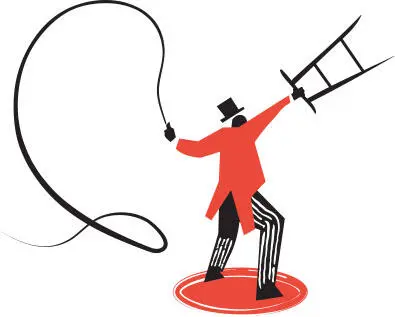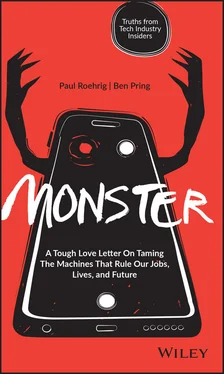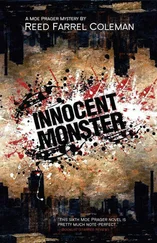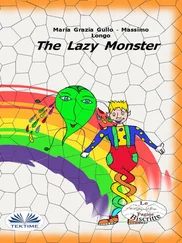In the tradition of Socrates and Plato, Watson and Crick, Mick and Keith, or Abbott and Costello, we’ve tried to capture a spirit of our own dialogue, the back-and-forth wrestling with these issues, which are some of the most complicated that humans face today.
In a few pages, we try to net out which questions are important, what we should be paying attention to, and — importantly — what must be done. 2 All of the following thoughts stem from our own research, work with clients, reams of insight, and ideas from others, and hours and hours of discussion and debate between ourselves — on conference calls, in meeting rooms (and a few bars) — where we traded point and counterpoint to develop a narrative that made sense and that could help us find a healthy path ahead.
It should also be noted that in our deliberately short book, we haven’t tried to write a complete overview of technology or finance or the human psyche or societal structures. Fantastic but modestly sized books like The Prince , The Art of War , and Night don’t completely explain leadership, conflict, or evil. Rather, they each tell a “small” story to illustrate themes of nearly infinite complexity and scope. The story of the Monster is so comprehensive it would take dozens of books to “cover” everything (and would certainly still fail). Instead, we chose to create a small piece to frame one of the biggest stories of our time.
Some will undoubtedly query why we’ve chosen to focus on “x” and not “y.” This is, again, by design. Based on our prior research and work over the past years, we made the best choices we could to focus on what we feel is the most relevant and the most likely to help us out in the near term. The result is a subjective but informed take on an extremely complex set of interlocking issues.
Our hope is that by allowing ourselves this freedom, we have given ourselves permission to examine and understand the fundamentals of how the new machines are reshaping our economy, our society, even our own minds and, in doing so, get to the essence of what we all need to do to move toward a future that may not be a utopia but is far less likely to be monstrous.

So if, in fact, we have created a technology monster, how can we begin to tame it?
Throughout the book, you’ll find recommendations for policy makers, business leaders, and ordinary responsible members of society. To make things easier (and provide some hope because what follows can get kind of dark), here is a summary of 13 lessons we will all need to embrace in the months and years ahead.
1 Tech is too important to be left in the hands of technologists. Intimidated by the complexity of technology, “civilians” have tended to let the “nerds” get on with things on their own. How did that turn out? Not so well. Technology needs to be regulated by technologists and a diverse cohort of non-engineers who can’t spell “Java.” Tech boffins may not like the sound of this, but we’ll get used to it.
2 Real freedom means ending data-based surveillance. To maintain authentic economic freedom, we have to recognize the rise of covert digital surveillance. It’s time to make it much harder — OK, impossible — to extract, mine, and sell our data and information without our true awareness and informed consent. The argument to use sensors, AI, and contact-tracing in the fight against the coronavirus pandemic is powerful, but by doing so, another step will have been taken toward the full compromise of the very notion of privacy.
3 Treat personal data like your reputation, not your disposable razor. Centralized data control is the taproot of winner-take-all internet businesses. Some are trying to wrest back control from the digital oligarchs, but that will be difficult. It’s up to each of us to recognize our personal data as a precious asset and treat it as such (rather than tossing it onto the web for the gain of others).
4 Is it safe? No, it is not. Wondering if you’ve been hacked? You have.
5 Get ready for the “splinternet.” Borders used to be drawn on maps. New borders will be drawn according to your IP address. Each region, country, state, or even city (or home) will have different views about the ideal technical, social, and economic model for the future. We need to be ready for different versions of the web, with vastly different conventions for privacy, tax, data, content, access, and more.
6 Follow — and manage — the money. Forewarned is forearmed, so simply being aware of how capital, growth, and economic power are changing will put us ahead. Be ready to participate in new regulations, tax policies, controls on capital markets, and more to protect wealth, innovation, and even our happiness.
7 Stop the brain hacks. Attempts to use technology + psychology to try to control us and extract value without our consent or knowledge need to be recognized for what they are: a violation of trust and ethics. This practice must be rooted out and shut down with regulation, law, and social convention so our activities, thoughts, and emotions are not hacked and tracked every time we log on.
8 Kick digital fentanyl. Tech gives us endless stimulation, a little drip of dopamine with every click, tweet, swipe, and like. It’s time to take steps to kick the addiction. Easier said than done, but step one is recognizing the problem.
9 Just breathe. Jacking into the web every day, every hour, may not be damaging, but it’s not benign. Community, friendship, faith, and mindfulness may seem quaint today, but the path to building healthy identities and minds in the modern age could be paved by actions and practices that have grounded us for millennia.
10 Learn from the rearview mirror. Our ancestors struggled to absorb their steam-powered disruption just as we are struggling with our new machines. We should hold up a mirror to the past to see many of the patterns repeating today as tech impacts capital, war, politics, society, labor, ethics, and more. By learning from the past, not repeating every mistake, we can guard against technology creating dark days ahead.
11 Be a “rules of the road” co-author. The velocity and direction of the next phase of the digital economy will be driven by many types of law, policy, and regulation: net neutrality, privacy, patent and IP law, taxation, data protection, industry regulation, AI ethics, labor laws, health data laws, job licensure, sharing economy regulation, etc. Even if it sounds mind-numbingly dull, this must happen, and it’s up to us to participate and help reset the governance structures of our new machines.
12 Show agency over your future. Waiting for “someone else” to figure this out for you — your family, your company, your country — is a mistake. If you’re a member of a democratic society, you have the right (obligation, really) to exercise authority over how you manage tech, use tech (don’t be a troll), and — critically — how you participate in the democratic process to govern tech. Sitting on the sidelines is for wimps. Don’t.
13 Recognize that “off” may sound enticing, but it’s unlikely. Can we turn off tech? Disconnect? Go dark? Maybe, but it’s not easy. For many of us, it’s simply not possible. (And what’s the fun in that?!) What we can do, must do, is reflect on how we want to engage with tech, decide what we want for our societies (and ourselves), and then act accordingly. Maybe we can’t turn it “off,” but we sure as hell can turn it down!
And here, further, and specifically, we recommend for consideration the following 10 tactics to be instituted without further delay. (Remember, we promised to begin to address the tough, controversial, and important questions!) These are framed within a US context, but they are relevant and applicable in many other countries.
Читать дальше













